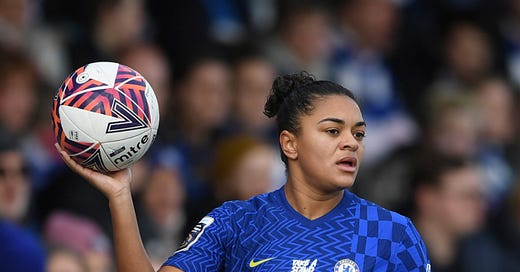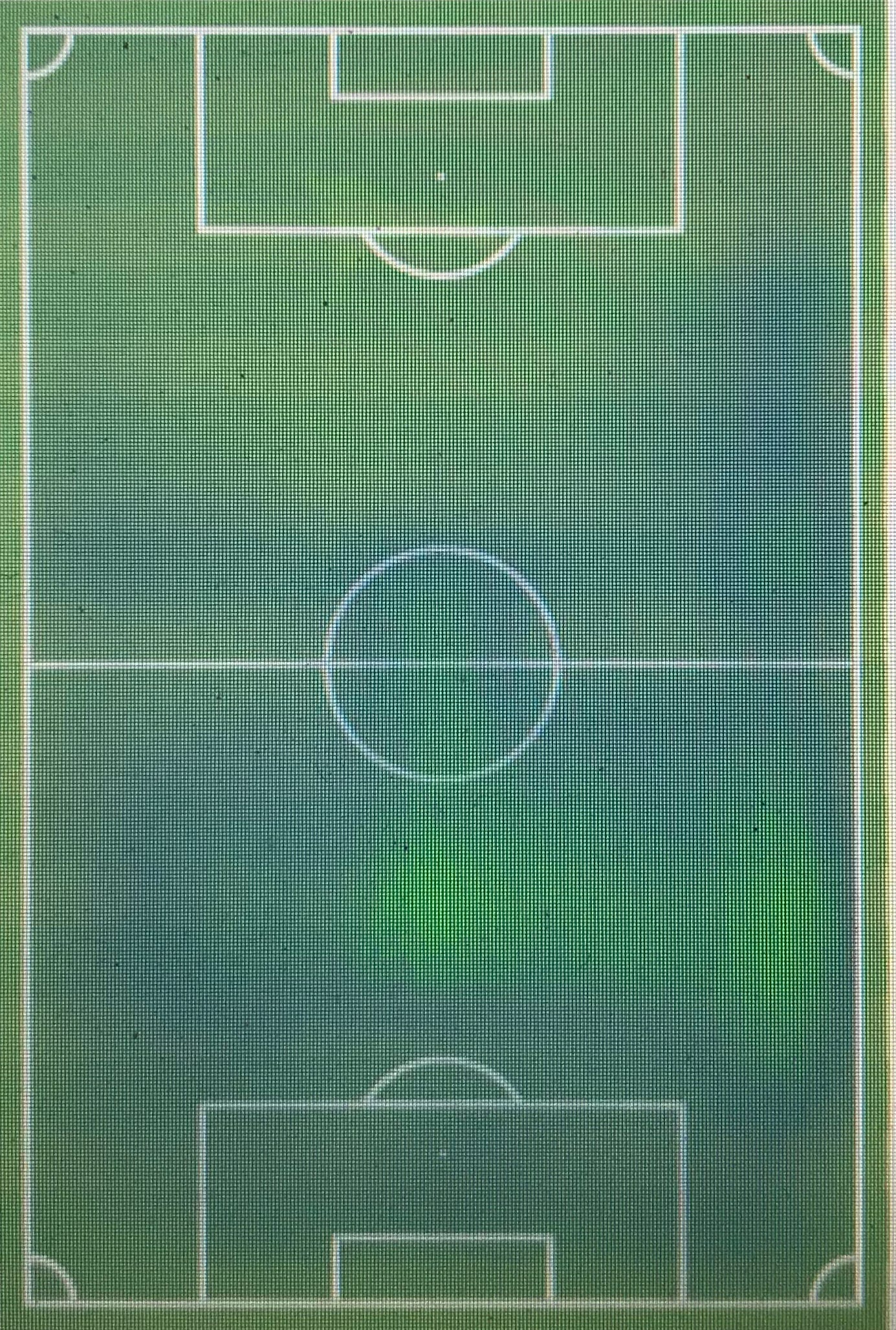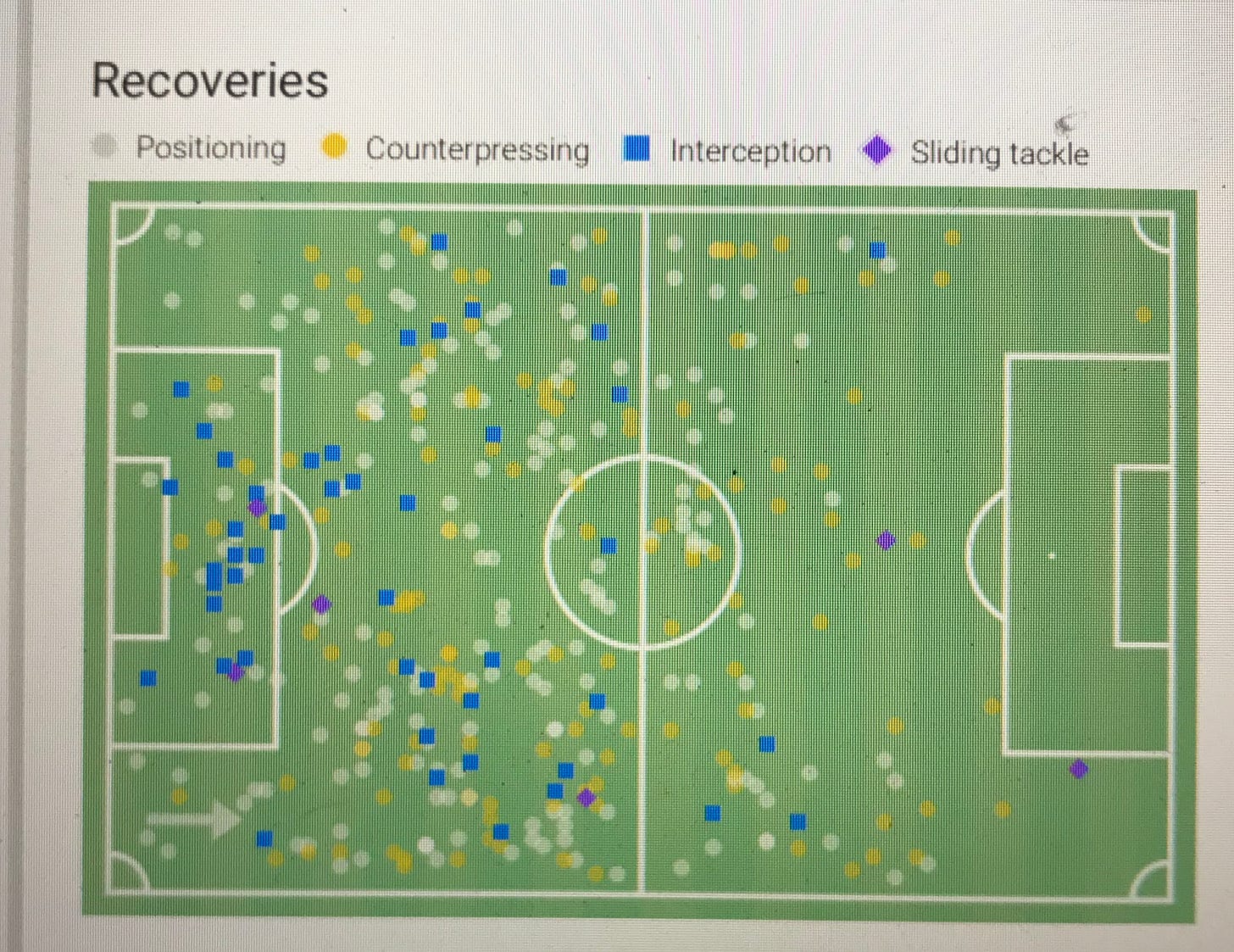The comeback kid
How Jess Carter has overcome doubters to form a crucial part of both Chelsea and England squads
The rise of Jess Carter in Emma Hayes’ Chelsea team has been a rapid one, and after some initial teething problems, the 24-year-old has found her feet in Chelsea’s defence and is now an integral part of both Hayes’ and England boss Sarina Weigman’s plans.
Carter came through the ranks of Birmingham City’s academy and at just 16-years-old, made her debut for the club in a Champions League Quarter-Final clash with Arsenal.
In 2018, she made the move to London to join Chelsea, still just 20-years-old, and won her first trophy in the 2019/20 Covid curtailed season, in which Chelsea were named Champions on a points per game basis.
The following season, Carter began in a bit part role, starting just three games for the club, before being named in the starting XI for Chelsea’s second leg 3-0 win over Wolfsburg in the Champions League quarter-final.
Carter then played the whole game in the WSL decider against Manchester City, both legs of the Champions League semi-final with Bayern Munich and of course the Champions League final against Barcelona.
It was in this game that Carter started to attract her doubters, with Caroline Graham-Hansen running Carter ragged as Barcelona run out eventual 4-0 winners, ending Chelsea’s quadruple dreams.
Many believed that Hayes’ decision to start Carter over Jonna Andersson had cost the team dearly, especially as Carter’s poor attempted tackle allowed Anita Bonmati to score Barcelona’s third and that she lost Graham-Hansen, who tapped in Barcelona’s fourth.
However, since that game, Carter has become an ever present part of Emma Hayes’ new 3-4-3 system, starting the 2021/22 season as the right sided centre back in the opening day 3-2 defeat away to Arsenal.
Carter has played 1939 minutes across all competitions this season, that figure is only bettered by Millie Bright (2,423), which again points to the trust that Hayes has in her.
Most of these minutes has come as the central centre back between Bright and Eriksson, after that opening day defeat, in which Carter had a tough time against Viv Miedema, the tactical switch seemed to help compose her and settle into the team.
More recently, with captain Eriksson out injured, Chelsea reverted to a back four, in which Carter was the first choice right back and it was back in her “natural position” that we started to see more and more of Carter’s influence on the pitch.
We started to see much more of Carter’s physicality and the matches against Manchester City, in which she kept Lauren Hemp quiet on both occasions, and the top of the table clash with Arsenal, in which she was more of a match for Lia Walti.
Carter’s flexibility to switch seamlessly from a back three to a back four is another reason why Hayes trusts and uses Carter so often. We saw it in the most recent game vs. Reading, many expected Niamh Charles to continue in the team given her fine form recently.
But it was Carter who was tasked with keeping Deanna Rose quiet, a job that she did to great aplomb.
In fact, Carter’s recent performances have lead to calls from some people that she should win the Football Writers Player of the Year award, which would’ve been almost unthinkable at the start of the season.

Carter’s stats certainly help build a case for her inclusion in the nominations, in the WSL this season she ranks 23rd for possession recoveries, averaging 9.99 per 90 minutes and 22nd for counter press recoveries, averaging 4.34 per 90 minutes.
11th for defensive duels, averaging 6.52 per 90 minutes, with a success rate of 71.43%. That percentage is higher than both Bright (64.9%) and Eriksson (61.8%), but slightly lower than Aniek Nouwen with (72.8%).
However all three of her team mates (Bright 9.99, Eriksson 14.08 and Nouwen 11.71) attempt more duels on an average over 90 minutes, but this can be put down to the different roles played by them.
9th for dribbles, averaging 0.99 per 90 minutes with a success rate of 75%, this is somewhat higher than Bright (0.42 37.5%), Eriksson 0.45 0%) and Nouwen (0.28 33.3%).
Although it is of course worth nothing that Carter’s position is only similar to Nouwen’s in the back three and has played significant minutes at right back this season.
Carter also ranks 6th for offensive duels, averaging 3.41 per 90 minutes, with a 45.4% success rate.
These stats come from 1450 minutes in the WSL, after 17 appearances, of which 15 Carter has started for Chelsea.
In terms of her defensive team mates, only Millie Bright has featured more often and perhaps only Bright could challenge her for the award.
However, the biggest turn around for Carter cannot be quantified in stats. She’s playing with a confidence now that is being reflected in the supporters.
There’s no longer questions about her inclusion nor is there a fear that she’ll make a mistake that will lead to a goal.
As mentioned earlier, Carter has started 15 of her 17 WSL appearances for Chelsea, who have only conceded 7 goals all season and recently set a new record of 7 consecutive clean sheets at home.
Those numbers would not be possible if Carter was a liability, and if she was, there’s no way Hayes would continue to pick her.
Now away with England, Carter will be looking to add to her six competitive caps, and after her impressive performance against Spain in the Arnold Clark Cup, a competition in which she played 3 different positions, her versatility and reliability will be a vital asset to England manager Sarina Weigman at this summer’s European Championships.
Too many supporters were quick to write Jess Carter off earlier this season, but she’s proved all her doubters wrong and is worthy of wearing both the Chelsea and Lionesses jerseys.








great write up Dean👏🏻